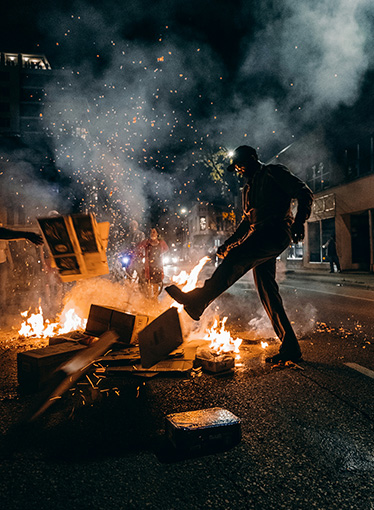Evacuations from Israel and High-Risk Locations Call +44 (0)1202 308810 or Contact Us →

Global Security: Kazakhstan Unrest and State of Emergency
6 Jan 2022
On 4 and 5 January, Kazakhstan saw significant unrest that was initially triggered by anger over the government lifting the price caps for Liquified Petroleum Gas (LPG). The unrest first erupted in the poorer west of the country; however, by 4 January protest action was being reported in the capital, Nur-Sultan, and largest city, Almaty. By Wednesday 5 January, the country’s government had resigned, and a nationwide state of emergency was in place.
Key Points
On 4 and 5 January, Kazakhstan saw significant unrest that was initially triggered by anger over the
government lifting the price caps for Liquified Petroleum Gas (LPG). The unrest first erupted in the poorer
west of the country; however, by 4 January protest action was being reported in the capital, Nur-Sultan, and
largest city, Almaty. By Wednesday 5 January, the country’s government had resigned, and a nationwide
state of emergency was in place.
Whilst initially sparked by a hike in fuel prices, the unrest has been fuelled by deeper socio-economic issues.
Many taking part in the protests are calling for widespread reform, including free elections, political
representation and the removal of the governing elite.
Internationally, Russia will be viewing the unrest with concern. Moscow is sensitive to unrest in former Soviet
states. With an important summit next week regarding Ukraine, the Kremlin will be eager for calm to be
restored quickly. It has also led to Russia leaning commentators accusing “outside influences” of stoking the
unrest. Despite this, it remains unlikely that calm will be restored quickly without a brutal crackdown or
protesters achieving their aims.